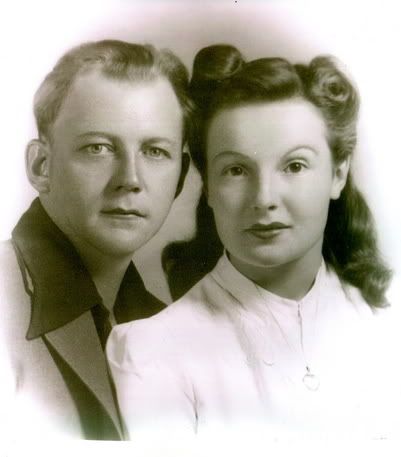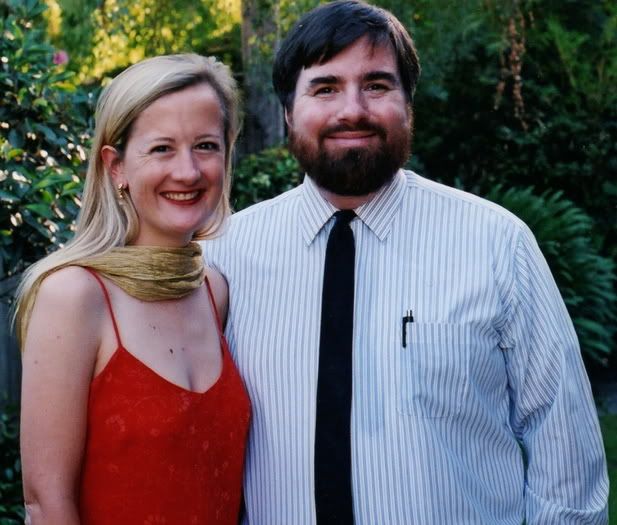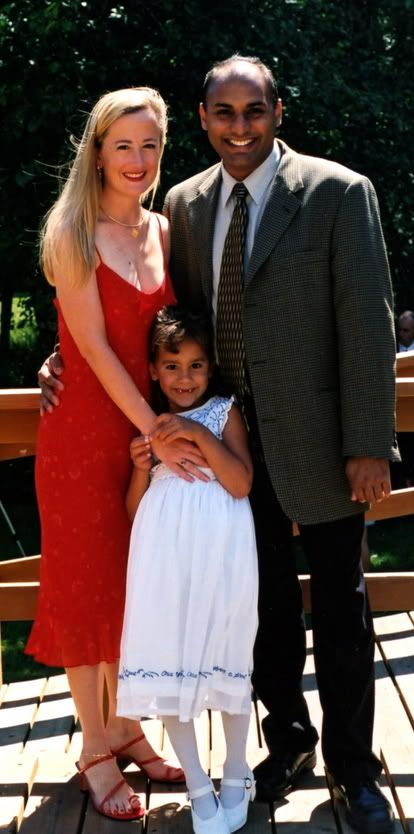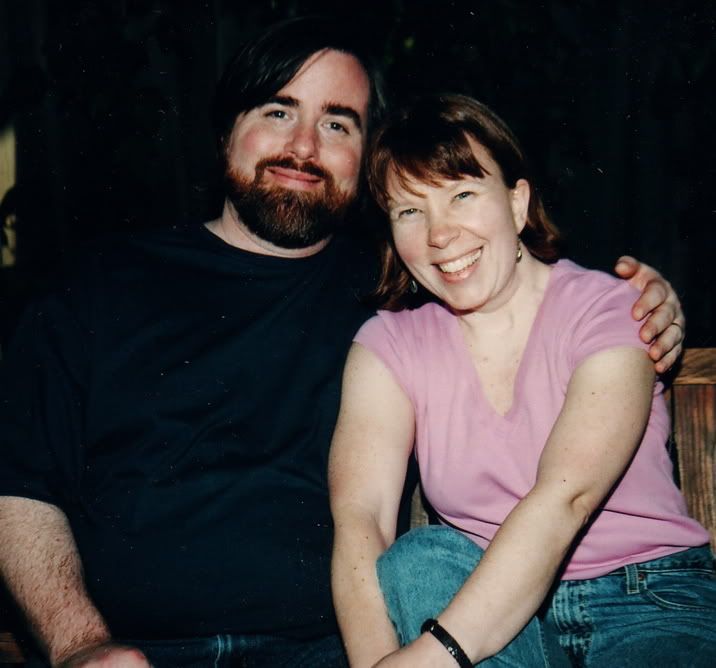Showing posts with label Theocracy. Show all posts
Showing posts with label Theocracy. Show all posts
Friday, January 11, 2008
The Right
What will you do to protect the rights of all Americans to worship -- or not?
Particularly, what will you do to protect the rights of people who are not like you? People who do not believe what you believe? People who you think are wrong?
Will you protect the rights of all Americans to believe and think what they will? Or do you think that the people who agree with you are somehow more American? More right? More worthy?
Monday, July 02, 2007
The Wall

Walls are meant to protect what is on one side from what is on the other. When the wall is built between two parts of a city, or two countries, it serves to keep at least some, if not all, of the people subject to the rule of other people. It walls off one group, denying them freedom. When the wall is built between two institutions, like between church and state, it serves to keep at least one of those institutions under the rule of the people. It grants the people freedom.
 Robert Frost said that "Good walls make good neighbors." He was talking about the walls that keep my cattle out of your crops. There is a protection in which both parties are actually covered. My cattle don't wander off and get hit by a car; your crops are still there to feed your family.
Robert Frost said that "Good walls make good neighbors." He was talking about the walls that keep my cattle out of your crops. There is a protection in which both parties are actually covered. My cattle don't wander off and get hit by a car; your crops are still there to feed your family.When the state has an official religion, when the wall is breached, harm is done to both institutions. We can see from the historical theocracies in the middle ages as well as the current ones in the middle east, that freedom is subverted when people who claim to speak for God have political power by virtue of that connection. How do you oppose the policy of the Divinely Appointed? And when the government has a say in religion, people who do not believe as the government demands they believe also suffer.
Religion, at its best, is a comfort and an inspiration and a source of meaning and community. But, at its worst, it has been used as a way to keep the masses powerless and the elite in charge. From slaves to peasants to women, religion has used the promise of a reward in the afterlife to maintain obedience in this life.
 PBS recently ran a three part British series called the History of Disbelief. It was interesting to me that in both England and France many doubters during the Age of Reason were aristocracy who felt that doubting would be bad for the "lower orders" because along with the questioning of the authority of religion came the questioning of the authority of the powerful. To doubt was good for men with power, but many of them recognized that if everyone doubted, they would loose that power. If the king has no divine right, then by what right does he rule?
PBS recently ran a three part British series called the History of Disbelief. It was interesting to me that in both England and France many doubters during the Age of Reason were aristocracy who felt that doubting would be bad for the "lower orders" because along with the questioning of the authority of religion came the questioning of the authority of the powerful. To doubt was good for men with power, but many of them recognized that if everyone doubted, they would loose that power. If the king has no divine right, then by what right does he rule?The United States was founded on the idea that the government serves at the will of the people. A very different idea than that a man rules by right. To maintain this awareness, the Founders rightfully separated the state from the church, the authority to govern from the idea of God. It is less than patriotic to try to drag the U.S. government under the steeple.
Sunday, April 08, 2007
Know Them By Their Fruits
 Sarah Warren Osborne (c. 1643–May 10, 1692) was my ancestor. She was also one of the first three women to be accused of witchcraft in the Salem witch trials of 1692. She was certainly not the last. Sarah was a sick woman without power who came to grief over a disagreement with powerful in-laws of her first husband about land. She hadn't been to church in two or three years, because of an illness which kept her bedridden. Additionally, she had married her indentured servant, Alexander Osborne, an action which was not approved of. Some sources say that there were questions about the propriety of their relationship before their marriage.
Sarah Warren Osborne (c. 1643–May 10, 1692) was my ancestor. She was also one of the first three women to be accused of witchcraft in the Salem witch trials of 1692. She was certainly not the last. Sarah was a sick woman without power who came to grief over a disagreement with powerful in-laws of her first husband about land. She hadn't been to church in two or three years, because of an illness which kept her bedridden. Additionally, she had married her indentured servant, Alexander Osborne, an action which was not approved of. Some sources say that there were questions about the propriety of their relationship before their marriage.Accused in early 1692, Sarah died in jail on May 10, waiting for her verdict. She was one of at least five people who died in prison; 20 were executed (14 women, 6 men) and around 200 were imprisoned. When we add to these victims, the thousands of mostly old women who were tried, tortured, and killed in Europe, we get a taste of what happens when there is no wall between church and state. Although the theocracy which ruled in Salem was Puritan and the theocracy which ruled in Europe was often Catholic, the results of giving the power of the state to the church was the same for helpless old women on both sides of the Atlantic. And then there were the victims of the Spanish Inquisition. And today we can look to countries practicing Sharia law for continuing persecution and murder of people, again mostly women, who do not conform to the theocrats in charge.
The Founders were not ignorant of this history. They were well aware of what can happen when the church gets entangled in the state. They passed the First Amendment in order to protect this country from the hubris that develops when the head of state believes that God is on his side, that he has a divine right to rule as he will.
These days we are skirting very close to the danger that the Founders worked so hard to avoid. We already have an administration which regards faith as more important than fact and a president who has said that he has been appointed by God. As scandal piles on top of scandal, we see only the beginnings of what can happen when government officials are chosen because they meet the test of religion rather than either experience or competence.
Subscribe to:
Posts (Atom)
















